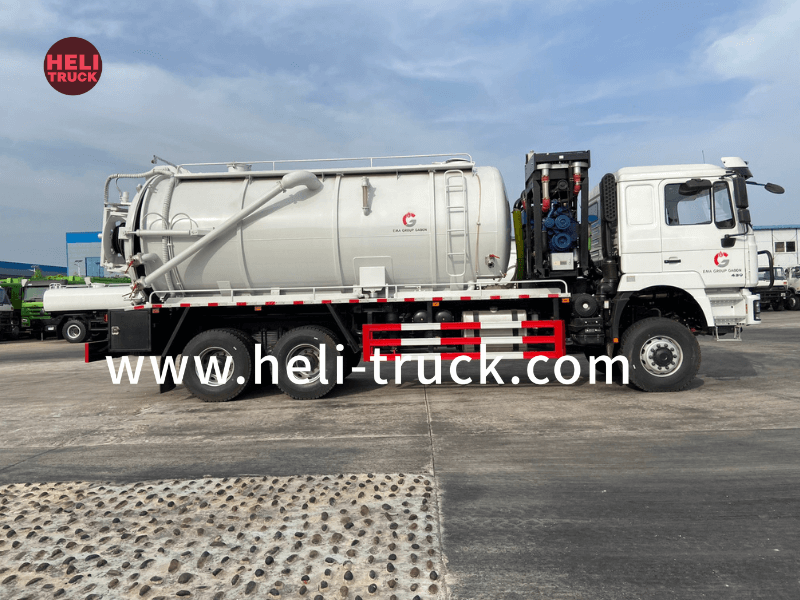Introduction
Work trucks are essential vehicles for many businesses across various industries. These trucks are relied upon to transport goods, equipment, and personnel to job sites, making them a crucial asset for operations. To ensure that work trucks operate efficiently and reliably, proper maintenance is key. Neglecting maintenance can lead to breakdowns, costly repairs, and downtime, impacting productivity and profitability. In this comprehensive guide, we will discuss the importance of work truck maintenance, essential maintenance tasks, best practices, and tips to maximize the longevity and efficiency of work trucks.
Importance of Work Truck Maintenance
Work trucks are subjected to rigorous use, often operating in challenging environments and carrying heavy loads. Without regular maintenance, these vehicles can experience wear and tear, leading to mechanical issues and decreased performance. By implementing a proactive maintenance plan, businesses can prevent breakdowns, extend the lifespan of their work trucks, and ensure optimal performance. Regular maintenance also helps in identifying potential problems early, allowing for timely repairs and minimizing costly downtime.
Essential Maintenance Tasks for Work Trucks
1. Regular Oil Changes: Oil is the lifeblood of an engine, lubricating moving parts and reducing friction. Regular oil changes are crucial to prevent engine wear and maintain performance. Follow the manufacturer's recommendations for oil change intervals based on mileage or operating hours.
2. Check Fluid Levels: In addition to oil, work trucks have other vital fluids such as coolant, transmission fluid, brake fluid, and power steering fluid. Regularly check and top up these fluids to ensure proper vehicle function.
3. Tire Maintenance: Proper tire maintenance is essential for work trucks, as they often carry heavy loads. Check tire pressure regularly, rotate tires as recommended, and inspect for signs of wear or damage. Replace tires when tread depth is low to maintain traction and safety.
4. Brake Inspections: Brakes are critical for the safety of the driver and other road users. Regularly inspect see this here , rotors, and brake fluid levels. Replace worn-out brake components promptly to ensure reliable braking performance.
5. Air Filter Replacement: The air filter prevents dirt and debris from entering the engine, ensuring clean air for combustion. A clogged air filter can reduce engine efficiency and performance. Replace the air filter as recommended by the manufacturer.
6. Battery Maintenance: Check the battery terminals for corrosion, ensure a secure connection, and test the battery's charge. Cold weather can be particularly hard on batteries, so ensure they are in good condition to avoid unexpected breakdowns.
7. Inspect Belts and Hoses: Belts and hoses play a crucial role in the operation of various components such as the alternator, water pump, and power steering. Inspect belts for signs of wear or cracking and replace them if necessary. Check hoses for leaks or damage and replace them to prevent coolant leaks.
Best Practices for Work Truck Maintenance
1. Create a Maintenance Schedule: Develop a maintenance schedule based on the manufacturer's recommendations and the specific operating conditions of your work trucks. Regularly track and document maintenance tasks to ensure nothing is overlooked.
2. Train Staff on Maintenance Procedures: Provide training to your staff on basic maintenance tasks such as checking fluid levels, tire pressure, and visual inspections. Empowering your team to perform routine maintenance can help catch issues early and reduce downtime.

3. Use Quality Parts and Fluids: When performing maintenance or repairs, use quality parts and fluids that meet or exceed the manufacturer's specifications. Substandard parts can lead to premature wear and potential damage to your work trucks.
4. Keep Detailed Records: Maintain detailed records of all maintenance and repairs performed on your work trucks. This information can help track the vehicle's maintenance history, identify recurring issues, and demonstrate compliance with maintenance schedules.
5. Conduct Regular Inspections: In addition to scheduled maintenance, perform regular inspections of your work trucks for signs of wear, damage, or potential issues. Address any concerns promptly to prevent larger problems down the line.
Tips to Maximize Longevity and Efficiency
1. Drive Responsibly: Encourage your drivers to practice safe and responsible driving habits. Aggressive driving behaviors such as speeding, hard braking, and rapid acceleration can increase wear and fuel consumption.
2. Keep Work Trucks Clean: Regularly clean your work trucks, both inside and out. Dirt and debris can accumulate on the vehicle, leading to corrosion and damage over time. A clean truck not only looks professional but also helps maintain its condition.
3. Store Work Trucks Properly: When not in use, store work trucks in a covered and secure location to protect them from the elements. Exposure to harsh weather conditions can accelerate wear and deterioration of components.
4. Address Issues Promptly: If your work truck shows any signs of mechanical issues such as strange noises, warning lights, or performance changes, address them promptly. Ignoring problems can lead to more extensive damage and costly repairs.
5. Consider Preventive Maintenance Programs: Some maintenance tasks, such as regular inspections and fluid checks, can be outsourced to professional service providers through preventive maintenance programs. These programs can help ensure that maintenance is performed on time and to a high standard.
Conclusion
Work truck maintenance is a critical aspect of fleet management that directly impacts the efficiency, longevity, and performance of these essential vehicles. By implementing a proactive maintenance plan, conducting regular inspections, and following best practices, businesses can maximize the reliability and lifespan of their work trucks. Investing time and resources in maintenance now can prevent costly breakdowns and repairs in the future, ultimately contributing to improved productivity and profitability. Remember, a well-maintained work truck is a reliable workhorse that can support your business operations effectively.
